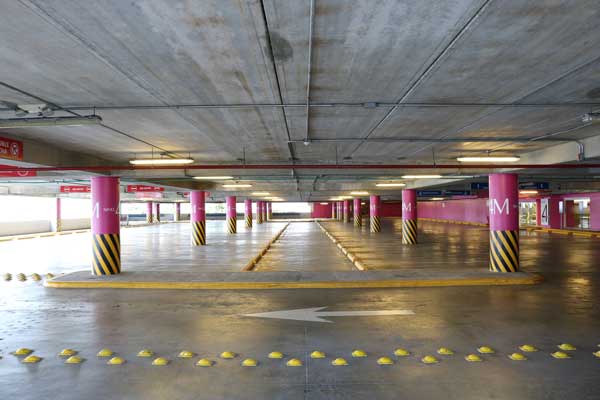Keeping Idle Facilities Safe
Written by: Michelle Meerse Categories: Business Insurance, Business Tips, Risk Management
During the current COVID-19 pandemic, most businesses and organizations that provide non-essential services have been required to close across Canada. As a result, many buildings and structures will be sitting idle for an unknown period of time.
Organizations are implementing contingency plans such as: home-working, skeleton staffing, social distancing and cleansing regimes to maintain operations. However, for some organizations, this is not possible. Following the latest government instructions, these workplaces will now be temporarily shut down. Idle properties are at a greater risk of arson, vandalism and theft. Property damage can also occur from more common perils such as burst pipes and leaking roofs. This means that a higher level of attention to the condition and security of your property is needed to manage these situations and reduce the risk of loss. The following measures and steps have been provided to assist you in mitigating potential losses for idle buildings. Download your COVID-19 Idle Facilities Checklist here.
Measures to protect your property
Maintenance / Inspections
- If the latest government instruction in your jurisdiction allows, check the premises every 72 hours ( or every 24 hours if the water is left on due to heating requirements ).
- Heating systems must be maintained and set to keep the buildings above 10 °C for all areas during the heating season.
- If possible, shut-off the water supply, drain pipework,
- toilet tanks, radiators and associated piping. Turn off the hot water heater. Note: some heating systems require water and therefore pipes cannot be shut-off during the heating season. If water is left on due to heating requirements, the property should be checked every 24 hours.
- To protect against electrical fires, turn off and unplug any non-essential electrical equipment.
- Conduct a thorough external inspection of your property, paying particular attention to items such as lightning grounding cables, eaves troughs, downspouts and roofing materials for damage or theft.
- Check oil tanks and gas cylinders for damage,
- theft or leaks. Note: major leaks may have to be reported to your provincial environment department.
- Check all exterior lights to make sure they are operational. Consider extending lighting coverage to yards and unlit property entry points.
- If practical, remove graffiti from exterior walls.
- Check for broken windows or other entry points that may have damage from break-ins or attempted break-ins. Any damage to the buildings or security devices identified at the time of an inspection should be rectified as soon as possible. Take photographs of any damage before repairs.
Security
- Maintain services for alarm monitoring systems. Test the intrusion alarm system to ensure it is fully operational.
- Make sure the list of key-holders is up to date and that they can be contacted in an emergency.
- Ensure security cameras are operational and positioned to cover all entry points/exits and vulnerable areas. Consider having live camera feeds accessible on mobile phones.
- Ensure that all doors are locked and dead-bolted and that all windows are closed and locked. Move high-value items out of view, or into a safe if one is available.
- Remove cash from the premises. Consider leaving a note on the door stating that no cash or valuables are on site.
- Use timers to turn lights on/off on the inside and outside of the buildings.
- Secure roof hatches and outbuildings ( e.g. sheds, garages ) with deadlocks or padlocks.
- Where there is perimeter fencing, limit yard access by securing gates with locks or padlocks.
Personal Safety
- Designate a person to be responsible ( perhaps consider a rotational schedule to spread the workload ) for checking the buildings and conducting regular maintenance.
- Be mindful of provincial travel and group number restrictions and be mindful of those who are vulnerable to COVID-19. For those at higher risk, consider excluding them from the property inspections.
Housekeeping
- Remove any accumulations of trash, debris, combustible and flammable materials e.g. cardboard, wood, paper or gas for a lawnmower from buildings and outbuildings.
- Remove snow/ice from walkways and driveways leading to the buildings.
- Keep the area salted and sanded.
Record Keeping
- Keep a written log recording the dates and times when the buildings were checked, and any actions taken.
- Where it is not possible to visit buildings during the pandemic, inspections should be reinstated once travel restrictions are lifted.
- Photograph any damage to your property.
Having employees and volunteers work from home and observe appropriate social distancing protocols during the COVID-19 pandemic keeps everyone safe and aligns with recommended best practices during this difficult time. Taking just a few simple additional precautions can also ensure that your temporarily idle and empty premises are safe, secure and ready for the post-pandemic world.





